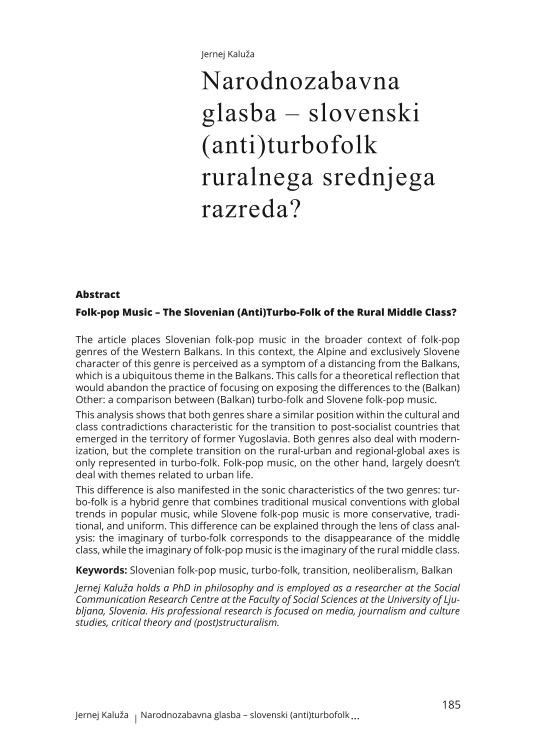The article places Slovenian folk-pop music in the broader context of folk-pop genres of the Western Balkans. In this context, the Alpine and exclusively Slovene character of this genre is perceived as a symptom of a distancing from the Balkans, which is a ubiquitous theme in the Balkans. This calls for a theoretical reflection that would abandon the practice of focusing on exposing the differences to the (Balkan) Other: a comparison between (Balkan) turbo-folk and Slovene folk-pop music.
This analysis shows that both genres share a similar position within the cultural and class contradictions characteristic for the transition to post-socialist countries that emerged in the territory of former Yugoslavia. Both genres also deal with modernization, but the complete transition on the rural-urban and regional-global axes is only represented in turbo-folk. Folk-pop music, on the other hand, largely doesn’t deal with themes related to urban life.
This difference is also manifested in the sonic characteristics of the two genres: turbo-folk is a hybrid genre that combines traditional musical conventions with global trends in popular music, while Slovene folk-pop music is more conservative, traditional, and uniform. This difference can be explained through the lens of class analysis: the imaginary of turbo-folk corresponds to the disappearance of the middle class, while the imaginary of folk-pop music is the imaginary of the rural middle class.




